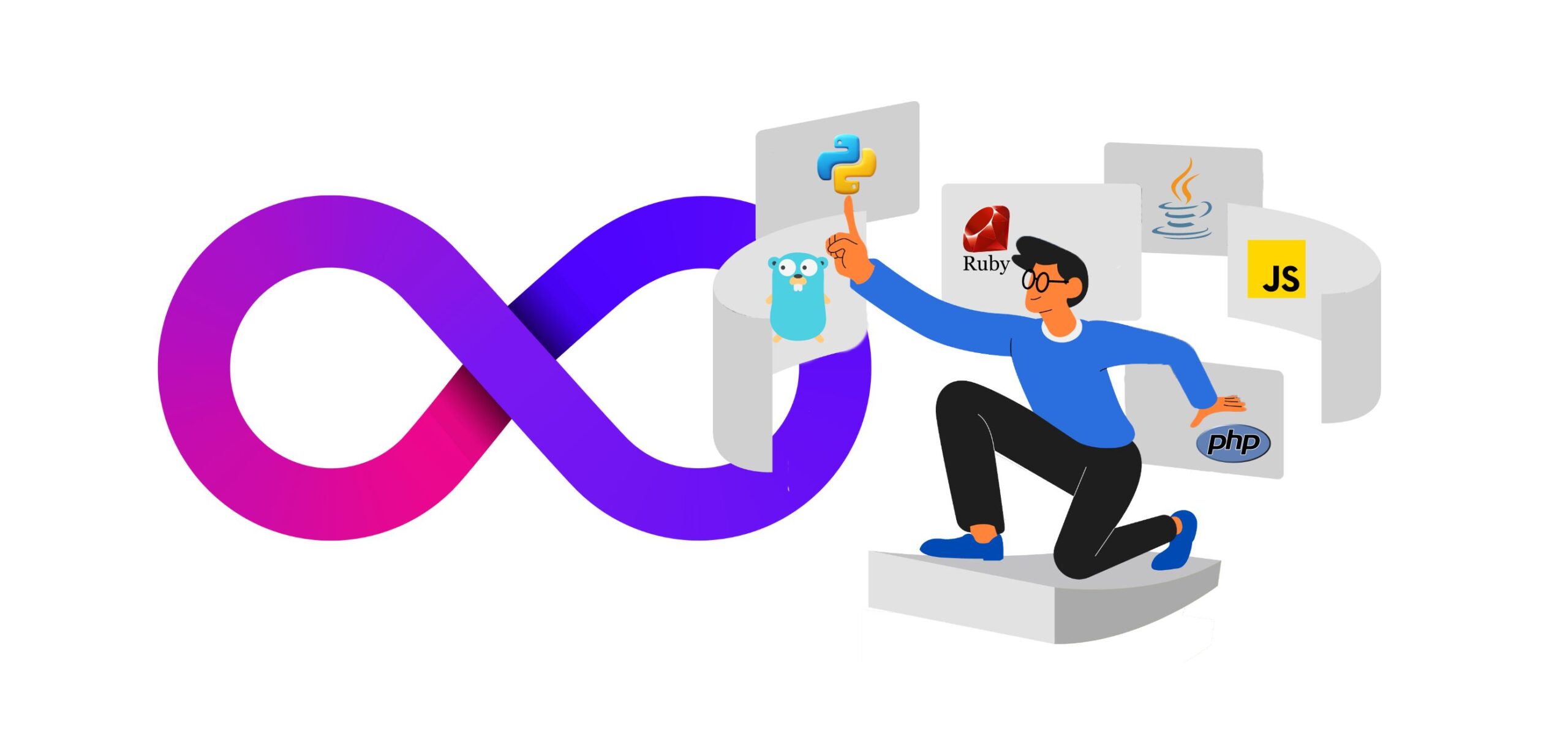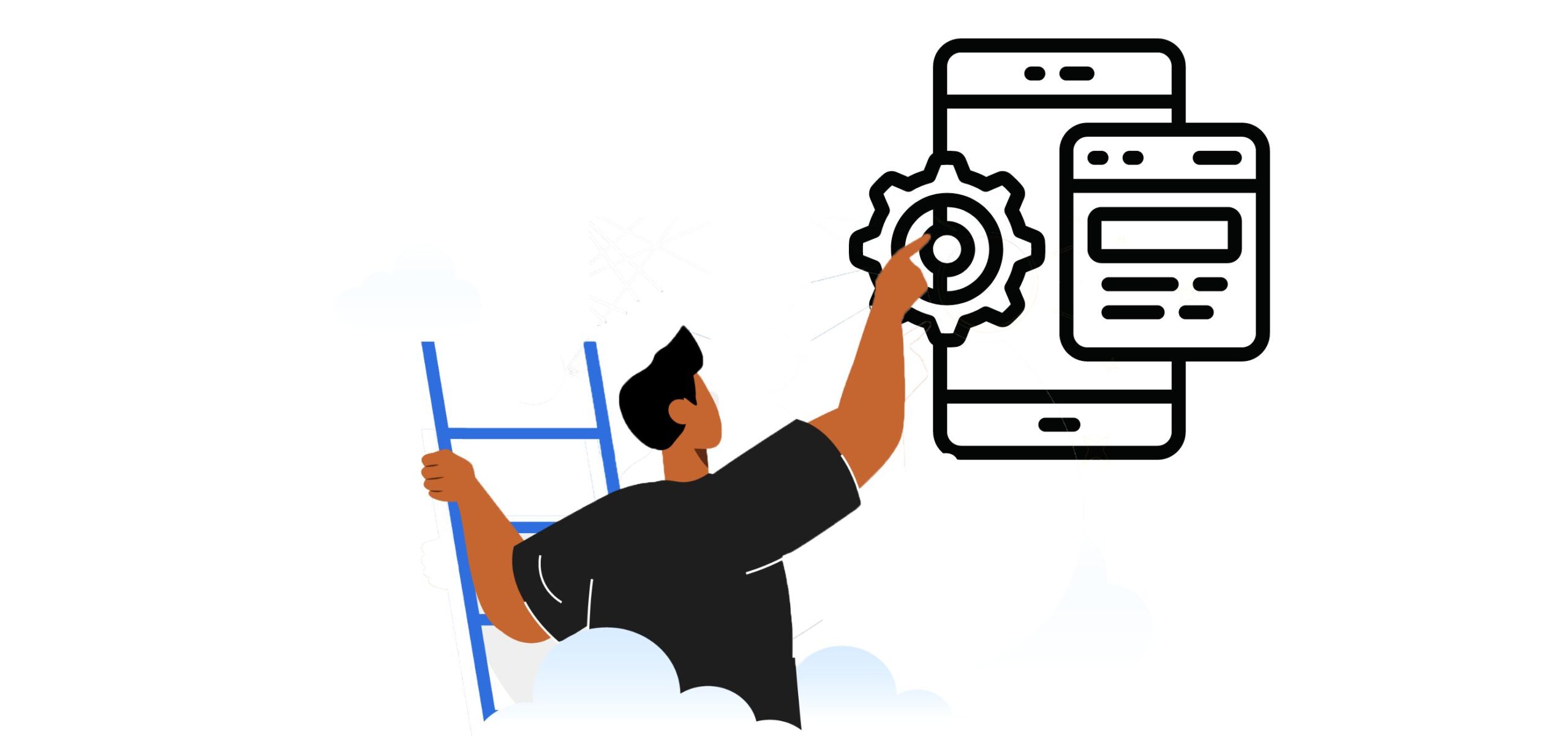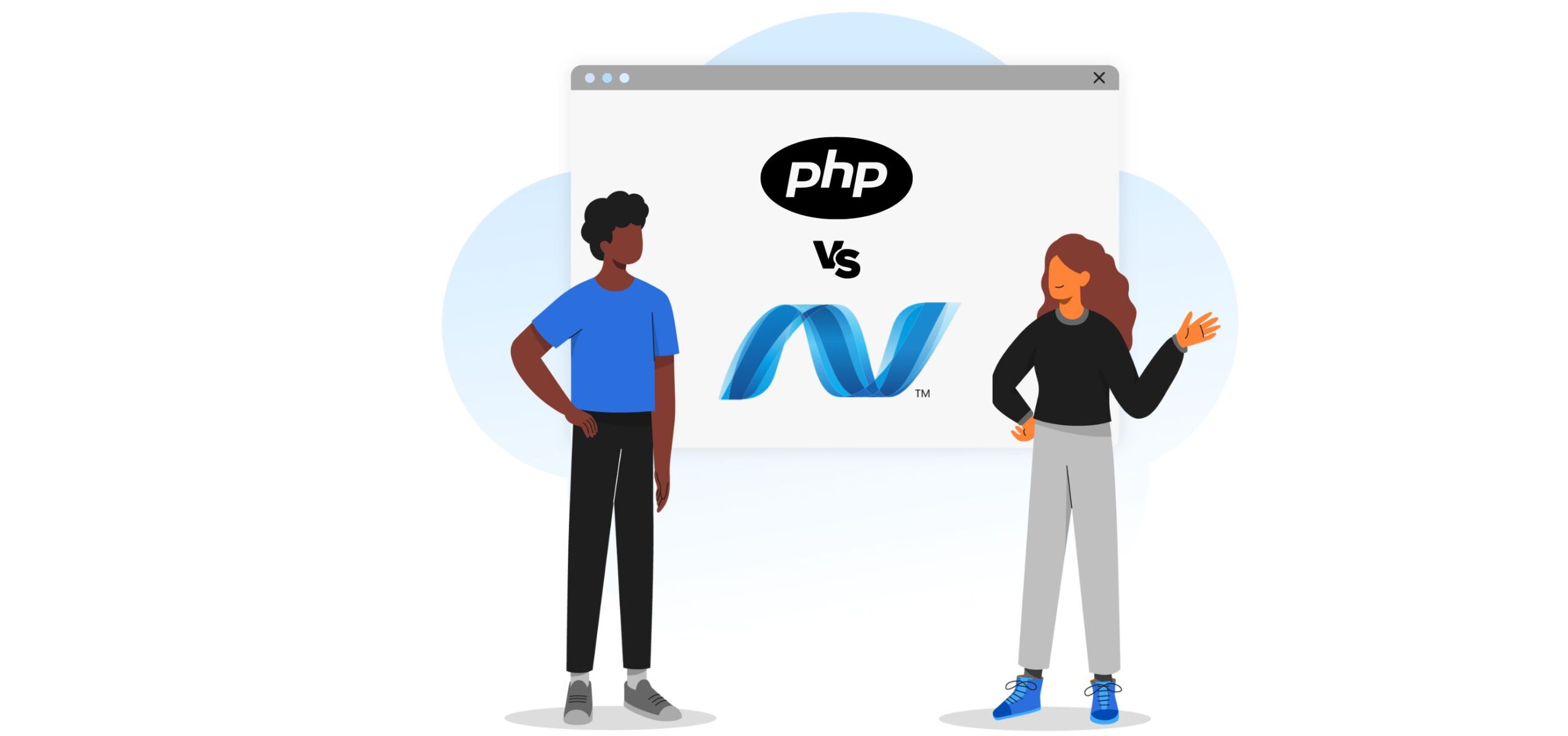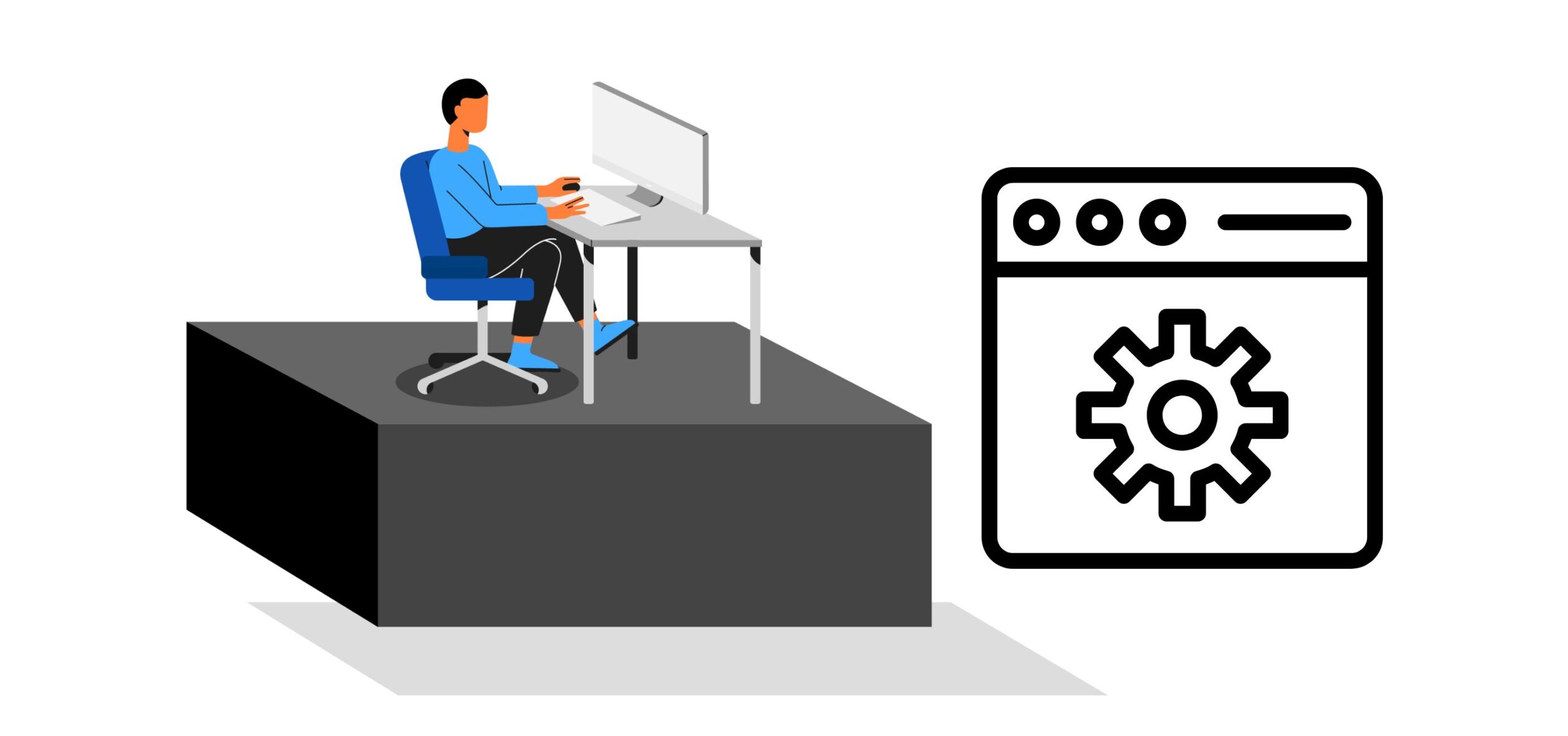Top 7 Programming and Scripting Languages for DevOps Engineers
DevOps facilitates collaboration, communication, and continuous improvement. So, DevOps engineers have to learn specific programming and scripting languages to accelerate improved software releases and deliver them more frequently.
DevOps is an exciting field because it requires engineers to think about how to streamline different parts of the software creation process.
This requirement means that a good DevOps engineer must know several programming or scripting languages. What’s more, the more coding languages you know, the better you’ll be at streamlining operations and building software efficiently.
This post highlights some of the top programming and scripting languages prospective DevOps engineers should learn to break into the industry or advance their careers.
What Is DevOps?
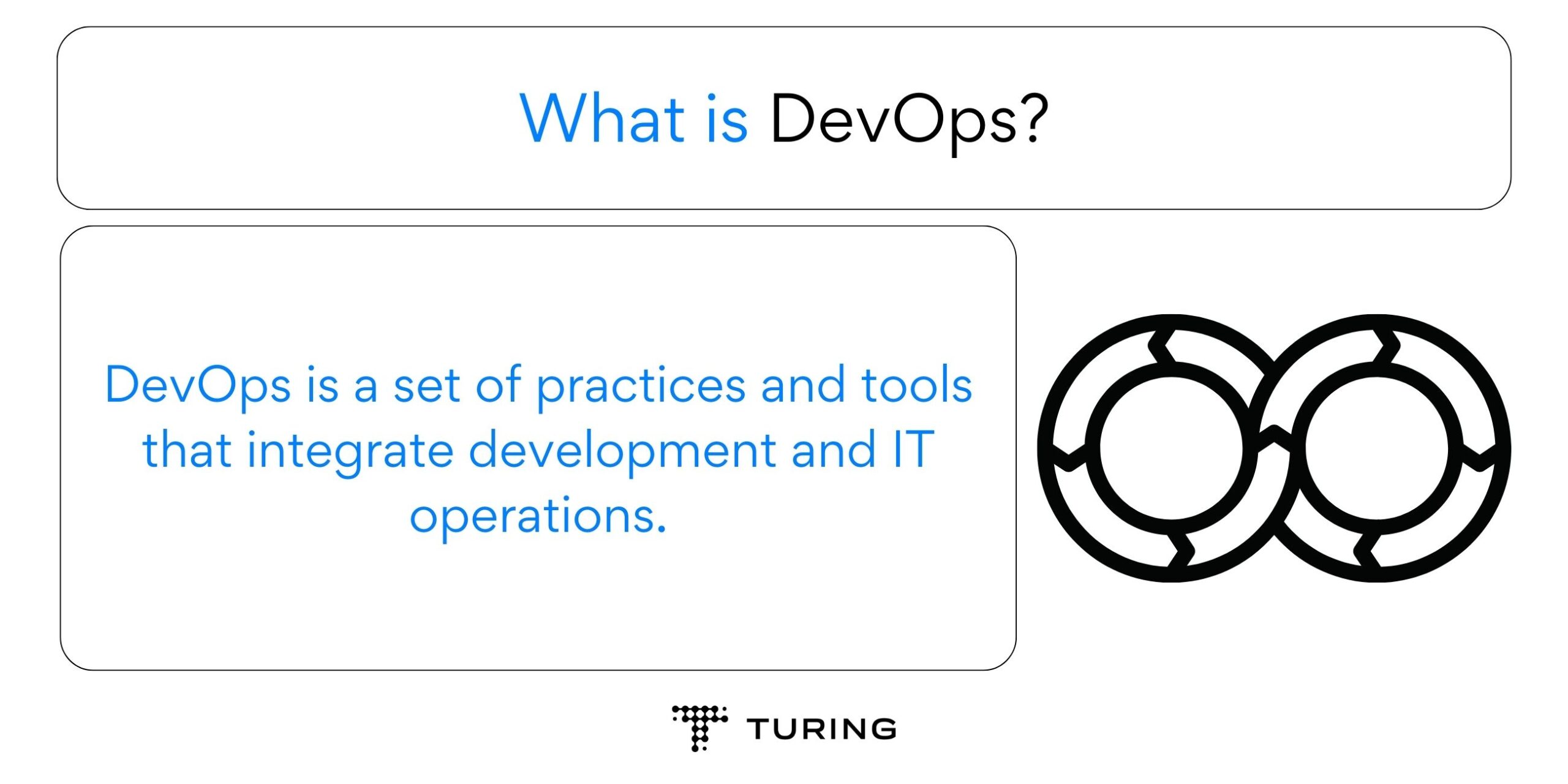
What is DevOps?
DevOps is a set of practices and tools that integrate development and IT operations. This term originated in the software development world but has now spread to other disciplines and is taught in higher education.
DevOps combines two sets of skills: developers and IT professionals who work closely to improve software quality, delivery speed, and reliability. A DevOps engineer emphasizes using lightweight automated tools and processes to increase productivity and responsiveness. This practice can also help streamline customer support, feature development, deployment, testing, and monitoring.
Which programming and scripting languages should DevOps engineers learn?
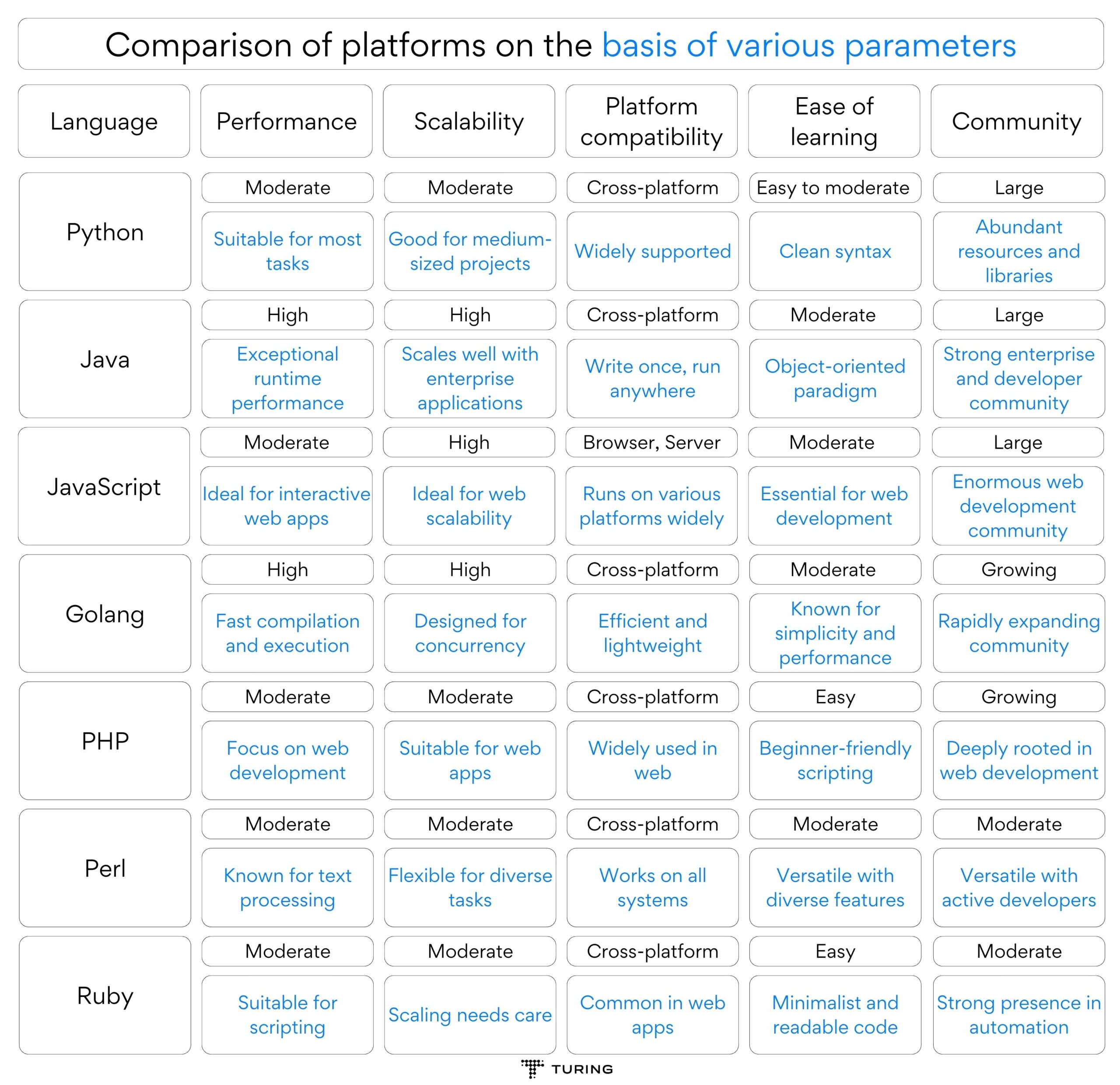
Comparison of platforms on the basis of various parameters
-
Python
Python is one of the most relevant scripting languages for DevOps engineers. The language can adapt to different environments and use cases, making it a particularly attractive option for DevOps teams.
Python is highly versatile and compatible across many platforms, including Windows, macOS, and Linux. Also, Python is one of the few scripting languages applicable for building a wide range of applications, from the web and native apps to machine learning.
Python’s clean syntax, dynamic typing, and open-source access make it an attractive choice for beginners and advanced programmers alike. While Python is not always the fastest option, its broad support and powerful libraries make up for its shortcomings.
- Performance: Python offers moderate performance suitable for most tasks but may not be the fastest option for computationally intensive operations.
- Scalability: It is moderately scalable and works well for medium-sized projects but might face challenges with very large-scale applications.
- Platform Compatibility: Python is cross-platform, making it widely compatible with Windows, macOS, and Linux.
- Ease of Learning: Python is known for its clean and readable syntax, making it easy to learn and suitable for beginners.
- Community: Python has a large and active community with abundant resources and libraries available for various applications.
Related post: Ruby vs. Python: What Is the Difference?
-
Java
Java is a high-level programming language DevOps engineers should learn. As a general-purpose programming language, Java is applicable for developing software for various platforms.
DevOps teams often use this language for building web applications because they can quickly integrate it into existing codebases. This feature makes it easier for them to adopt new technologies without rewriting large application parts.
Thanks to Java’s object-oriented programming support and garbage collection system, multi-threading feature, and support for distributed applications, the language is also suitable for server-side applications. Java is one of the common programming languages developers use in embedded systems because it allows them to connect electronics using standard protocols like I2C and SPI.
- Performance: Java offers high performance, particularly in terms of runtime execution, making it suitable for demanding enterprise applications.
- Scalability: Java is highly scalable and is designed for scalability, making it ideal for large and enterprise-level projects.
- Platform Compatibility: It is cross-platform, following the “write once, run anywhere” principle.
- Ease of Learning: Learning Java can be moderate due to its object-oriented paradigm, but it provides powerful capabilities once mastered.
- Community: Java has a large and robust community, particularly in enterprise and development circles, providing strong support and resources.
-
JavaScript
DevOps engineers use the JavaScript scripting language to create interactive, dynamic visual effects and interactivity for clients-side applications, including those that run on websites, desktop apps, or mobile apps.
JavaScript is also suitable for creating web forms and validating user input. In addition to its relevance as a programming language, JavaScript serves as a runtime environment that executes web applications written in other scripting languages.
JavaScript’s multi-paradigm style may seem too complicated for beginners. So it’s best to get experience with other programming languages like Python and Java before exploring JavaScript.
- Performance: JavaScript provides moderate performance, particularly in browsers, and is ideal for interactive web applications.
- Scalability: It offers high scalability and is well-suited for web scalability, especially for client-side scripting.
- Platform Compatibility: JavaScript is essential for browsers and can also run on servers using Node.js, making it ubiquitous.
- Ease of Learning: Moderate; it may require practice, but it’s crucial for web development.
- Community: JavaScript boasts an enormous web development community with extensive resources and frameworks.
-
Golang
Golang (also known as Go) is a statically typed, compiled language that runs on the Google Go programming platform. Go is one of the fastest programming languages any DevOps engineer can use to develop web apps, command-line tools, and desktop applications.
Google created this programming tool as a low-overhead, high-performance alternative to other languages like Java or Python. Because it’s compiled, Golang apps have fast startup times and are usually less resource-intensive than interpreted languages like JavaScript.
The language perfectly fits large software projects and big data analytics. Go has this edge over other languages because it allows programmers to use more runtime optimizations, such as constant folding and dead code elimination.
- Performance: Go (Golang) offers high performance with fast compilation and execution times, making it ideal for web applications and command-line tools.
- Scalability: It’s designed for concurrency and scales well, making it a great choice for large-scale projects.
- Platform Compatibility: Go is cross-platform, efficient, and lightweight, suitable for various environments.
- Ease of Learning: Learning Go is moderate; it’s known for its simplicity and performance-oriented features.
- Community: The Go community is rapidly growing, and it offers a wealth of resources for developers.
Related post: Golang vs. Java: What Should You Pick?
-
PHP
PHP is among the most popular open-source scripting languages for web development. Developers use PHP to build a wide range of web applications, from small personal blogs to large-scale business websites.
This programming and the scripting language is suitable for building static and dynamic websites. Furthermore, PHP allows developers to integrate payment processors, social media channels, and widgets.
Quite often, developers use this language independently. Other times, they combine PHP with other scripting languages like JavaScript and SQL. Combined with these other languages, PHP allows you to build a more well-rounded website.
- Performance: PHP provides moderate performance, with a focus on web development tasks and dynamic web pages.
- Scalability: It’s suitable for web applications but may require careful planning for large-scale projects.
- Platform Compatibility: PHP is cross-platform and widely used in web development across different systems.
- Ease of Learning: PHP is easy to learn, particularly for beginners, and is often used for server-side scripting.
- Community: PHP has a large and well-established community deeply rooted in web development, offering extensive support and libraries.
-
PERL
A DevOps engineer can use PERL for web development, data analysis, networking, system administration, and machine learning. PERL is one of the best scripting languages in the DevOps field because of its flexibility, reliability, and ability to run on any operating system.
Perhaps, PERL’s most common feature is to serve as a software framework. PERL frameworks are collections of modules that work together to create complex applications.
The frameworks are typically based on the same programming language, but you can create them using different tools or languages. PERL frameworks make it easy to build complex applications by allowing programmers to combine different parts into complex systems.- Performance: Perl offers moderate performance and is well-known for text processing and general-purpose scripting tasks.
- Scalability: It is flexible and versatile, suitable for various tasks but may not be the first choice for very large-scale projects.
- Platform Compatibility: Perl is highly cross-platform and works on virtually all systems.
- Ease of Learning: Learning Perl can be moderate due to its diverse language features, making it versatile but potentially complex.
- Community: Perl has a moderate-sized but active community, particularly in system administration and scripting.
-
Ruby
Ruby is one of the most preferred scripting languages for automating repetitive tasks in IT environments. This dynamic, interpreted programming language is an efficient DevOps tool for web development, data science, and unit testing.
Ruby is a fast-growing scripting language in IT today because it has a small learning curve. Beginners can easily get started without having any solid programming experience.
DevOps engineers can use Ruby to create small web apps, such as simple CMS platforms. Also, Ruby supports complex applications, such as messaging platforms and e-commerce websites. Ruby is also relevant for building web services and creating APIs (application programming interfaces).- Performance: Ruby provides moderate performance and is commonly used for scripting and automation tasks in IT environments.
- Scalability: While Ruby can handle various applications, it may require careful consideration for scalability.
- Platform Compatibility: Ruby is cross-platform and commonly used in web applications.
- Ease of Learning: Ruby is easy to learn, especially for beginners, thanks to its minimalist and readable code.
- Community: Ruby has a moderate-sized community with a strong presence in automation and scripting.
Wrapping up
Choosing the right programming language to learn to become a DevOps engineer can be puzzling. To select your ideal language, think about the kind of projects you want to work on as a DevOps engineer. Also, consider the difficulty of the language. Are there any closely related languages that are easier to grasp? These considerations will help you make the best choice for your career.
Are you a developer looking for a remote job with a top US company? You’ve come to the right place! Turing can help you land high-paying, high-growth US remote software jobs in no time. Visit the Apply for Jobs page to know more!
FAQs on DevOps programming and scripting languages
-
What’s the difference between programming and scripting languages?
A programming language is applicable for writing code that runs independently. In contrast, a scripting language is best for writing code that runs within another program, such as a web browser or server. -
How long does it take to learn a new programming language?
Most studies state that learning a new programming language can take between three to six months. Or approximately 500 hours depending on the learner’s pace, language difficulty level, and learning resources available. -
Which language is used for DevOps? What programming language should I learn for DevOps?
In DevOps, several languages are used, but Python and shell scripting are common for automation tasks. Python’s simplicity and extensive libraries make it suitable for various automation scripts, while shell scripting, especially Bash, is essential for Unix-based system tasks. JavaScript is used for web-related DevOps tasks, and Go (Golang) is gaining traction for building efficient tools. The choice depends on the specific automation needs within the DevOps pipeline. -
Is Python or Java better for DevOps?
Python is often considered better for DevOps due to its simplicity, versatility, and extensive library support, making it ideal for automation and scripting tasks. It’s widely used for configuration management and orchestration. Java, while powerful, may have a steeper learning curve and is more commonly associated with other development domains. The choice depends on specific project requirements and familiarity with the language. -
Is DevOps a programming language or not?
DevOps is not a programming language; it’s a way of working that brings together development and operations teams to make software delivery faster and more efficient. It uses tools and practices to automate tasks and improve collaboration. While programming languages are used in DevOps, DevOps itself is not one. -
Is DevOps a lot of coding?
DevOps involves some coding, but it’s not primarily about writing code. It’s more about improving processes, collaboration, and automation in software development and IT operations. While coding is essential for creating automation scripts and tools, it’s just one aspect of DevOps. DevOps emphasizes efficient workflows, communication, and the use of tools to enhance software delivery.
Join a network of the world's best developers and get long-term remote software jobs with better compensation and career growth.
